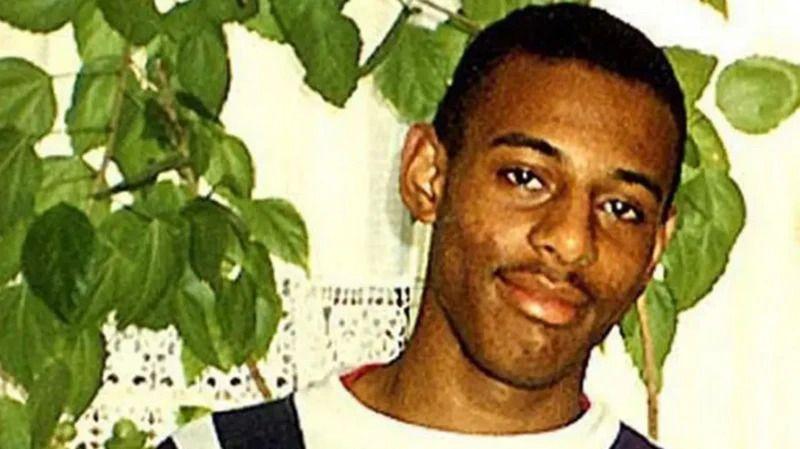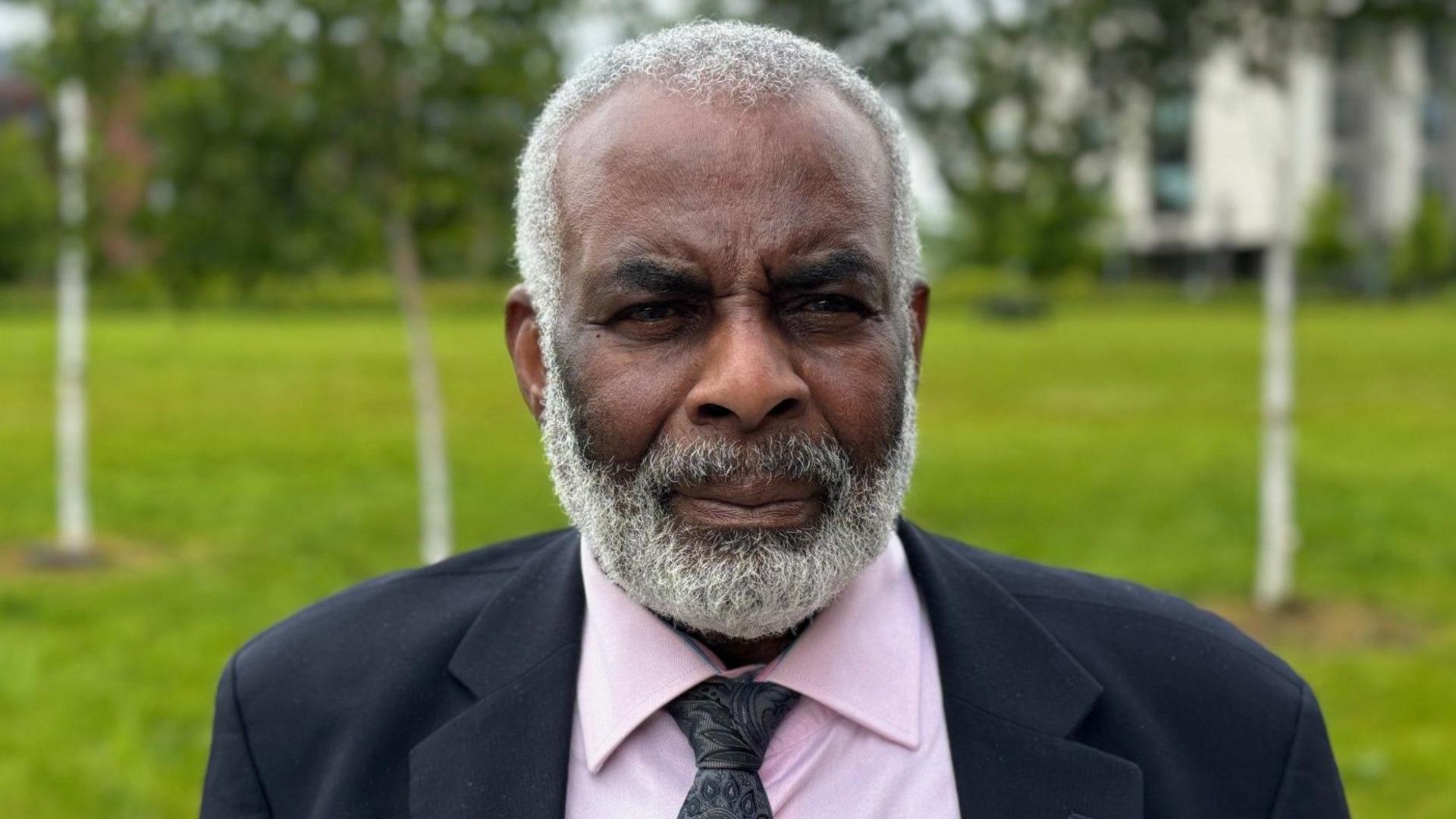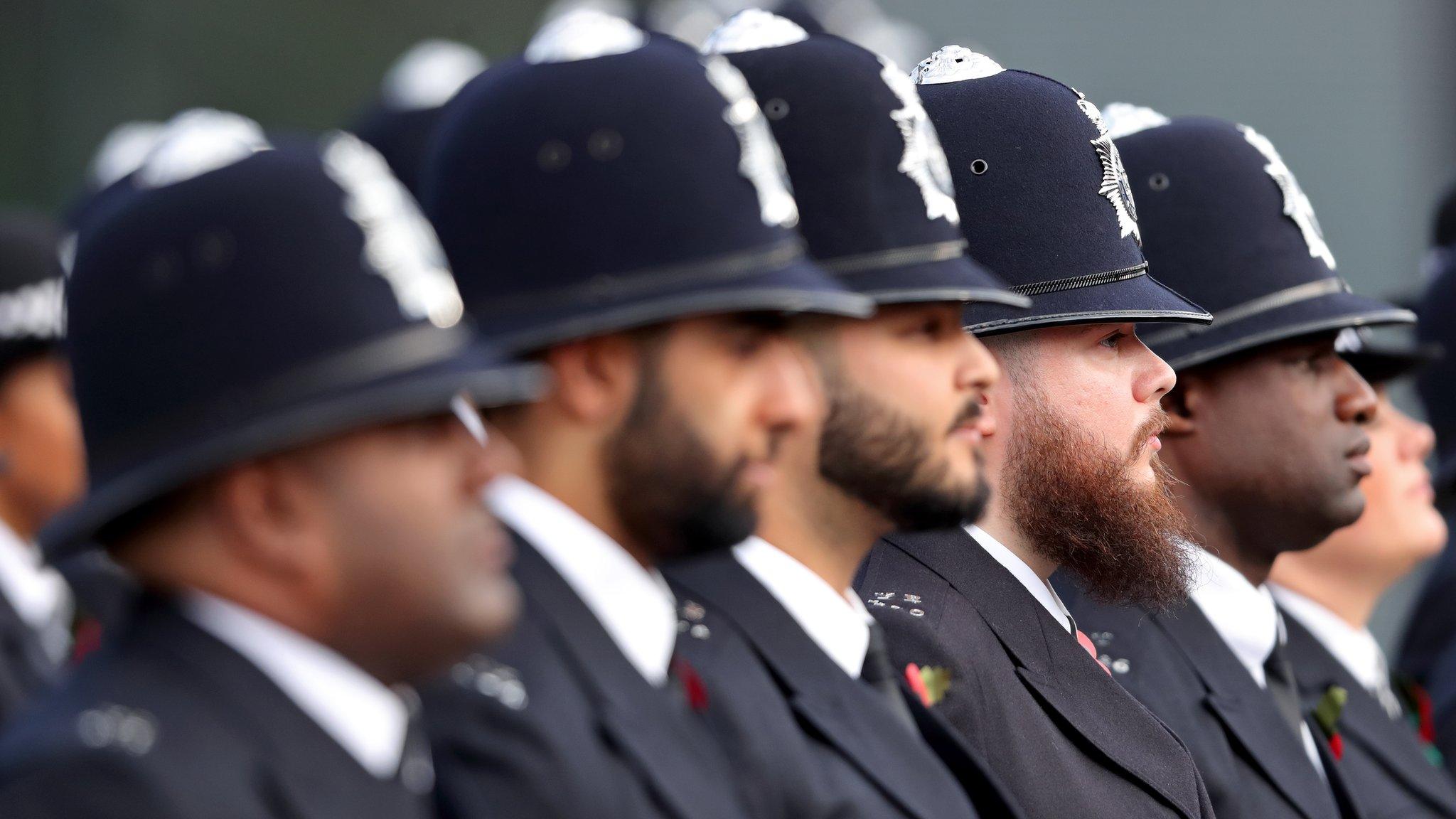Met spied on Stephen Lawrence family, inquiry told

Stephen Lawrence was killed in a racist attack in 1993
- Published
Police began gathering information about visitors to Stephen Lawrence's bereaved parents the day after his murder, a public hearing has been told.
An undercover policing inquiry heard the Metropolitan force put the family under surveillance "almost immediately" after the 18-year-old was killed in a racist attack in 1993.
Barrister Ifeanyi Odogwu, on behalf of Neville Lawrence, that while the family "sought justice, state power turned on the family".
The inquiry into undercover policing is looking at the activities of the Met's Special Demonstration Squad (SDS) between 1993 and 2007.
Undercover officer played role in Stephen Lawrence inquiry clashes
- Published13 October
Stephen Lawrence murderer must name other killers, father says
- Published7 October
Officers gathered information about the Lawrence family, including that their marriage had broken down during the public inquiry into their son's death, and details about the couple's civil claim against the Met.
Mr Odogwu told the hearing that from the days after Stephen's murder in April 1993, SDS officers began "collecting and circulating intimate information about the Lawrences and those assisting them".
He said the activity continued for years and reached into the Macpherson Inquiry - a 1999 inquiry into Stephen's murder and the subsequent police investigation - and it was "truly abhorrent and shocking" that personal information about the couple was passed to officers.

Neville Lawrence described the surveillance on his family as "perverse as it is offensive"
The inquiry heard that none of the information gathered about the family would have helped prevent public disorder - which was the supposed aim of the SDS.
"The undercover policing of the Lawrences occurred at times of the utmost sensitivity, while resources should have been focused on finding Stephen's killers, and during Macpherson," Mr Odogwu said.
"An intrusion in such highly sensitive periods requires a compelling case, and there is none."
Mr Lawrence said in a statement to the inquiry: "The implication, that we were somehow the ones to watch, was as perverse as it was offensive.
"It was as though our grief was treated as a threat, and our home as a site of suspicion, something I will never accept or forgive."
Listen to the best of BBC Radio London on Sounds and follow BBC London on Facebook, external, X, external and Instagram, external. Send your story ideas to hello.bbclondon@bbc.co.uk, external
More stories on this topic
- Published19 February 2019
